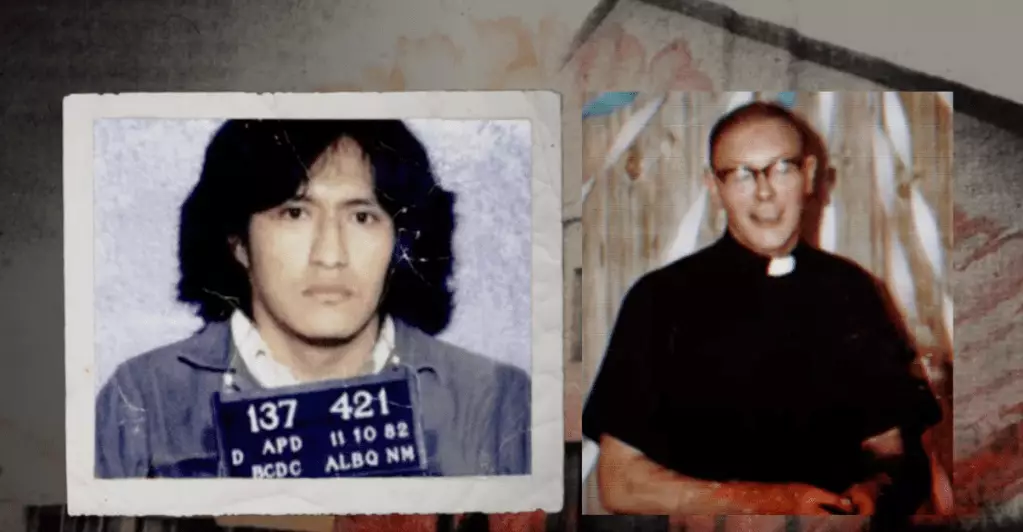In 1981, a grotesque crime marked the small town of Odessa, Texas, when the lifeless body of Father Patrick Ryan, a Catholic priest grappling with his identity as a closeted gay man, was discovered in the Sage and Sand Motel. This shocking murder, rife with complications regarding sexuality, race, and justice, became a pivotal chapter in the history of wrongful convictions in America. The priest’s death was not merely a tale of violence; it reflected the deep-seated biases and prejudices that permeated law enforcement practices and legal proceedings at the time.
A year after the murder, authorities hastily apprehended James Harry Reyos, a closeted Apache man, even though he had a verifiable alibi that should have precluded him from any suspicion. His conviction highlights alarming issues within the judicial system, particularly in how marginalized individuals are often scapegoated. With an alibi ignored and compelling evidence overlooked, Reyos was wrongly sentenced to 20 years in prison, serving as a stark reminder of how systemic racism and homophobia can distort the pursuit of justice.
The Struggles of an Innocent Man
The trajectory of Reyos’s life changed drastically when he was wrongfully imprisoned. The accusations against him were steeped in a culture of fear and misunderstanding surrounding the LGBTQ+ community and a Native American identity. Prosecutors and local law enforcement seemingly exploited societal biases, framing him as a “throwdown character”—a term that underscores how often marginalized identities are used to bolster narratives of guilt without substantial proof.
For Reyos, the fight for exoneration became a long saga filled with frustration and heartbreak. For decades, he sought to rectify the wrongs done to him, battling against a system that had failed him and countless others. The film “Night in West Texas,” directed by Deborah Esquenazi, dives into this poignant narrative by dissecting the layers of a system that allowed a miscarriage of justice to flourish unchecked.
A Modern Reckoning
Fast forward to 2017, when a new police chief in Odessa, Mike Gerke, took a stand against years of negligence. His approach marked a watershed moment in the case, initiated by an unexpected source—a true-crime podcast. The serendipitous spark offered Gerke new insights into Reyos’s wrongful conviction, leading him to re-examine evidence that had long been dormant.
What Gerke discovered was shocking: crucial latent bloody fingerprints from the crime scene had never been subjected to modern investigative techniques, particularly the Automated Fingerprint Identification System (AFIS). This oversight illuminated not only the failures of the past but also provided renewed hope for Reyos. The revelation that evidence could still yield new leads underscores the importance of vigilance in the justice system and the need for consistent re-evaluation of cold cases.
The Role of Advocacy and Support
The resurgence of Reyos’s case owes much to the dedicated efforts of individuals committed to justice. Represented by Allison Clayton and a cohort of passionate students from the Innocence Project of Texas, Reyos’s journey towards exoneration became a collaborative endeavor highlighting the power of advocacy. This film reveals the critical role that legal support and social advocates play in resolving wrongful convictions, emphasizing that the quest for justice is not a solitary fight.
The community’s rallying support around Reyos, despite his troubled past, exemplifies the profound human capacity for empathy and solidarity. People affected by systemic injustice often find strength in shared experiences, and Reyos’s plight galvanized a movement that sought not only to exonerate but also to educate others about the pervasive issues of race, sexuality, and wrongful incarceration.
Observing Systemic Failures
“Night in West Texas” is not just a recounting of Reyos’s ordeal; it is an incisive critique of the American justice system’s latent failures. The documentary delves into broader themes reflecting on how marginalized identities—particularly those intersecting race and sexuality—can fall victim to a legal system that is often blind to the nuances of humanity. It serves as a potent reminder that justice is an ongoing, collective endeavor shaped by people willing to challenge conformity and advocate for change.
Esquenazi’s work captures the harrowing reality surrounding wrongful convictions while engaging viewers in a crucial dialogue about systemic reform. By shedding light on Reyos’s story, she offers hopes for a future where justice prevails, not based on convenience or societal biases, but on truth and accountability.

